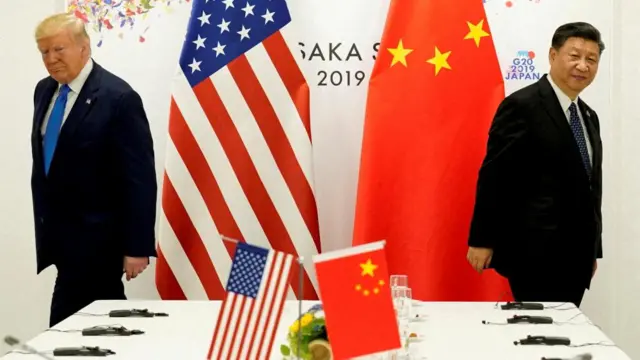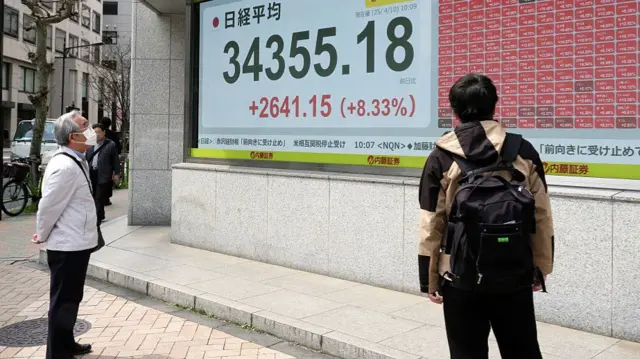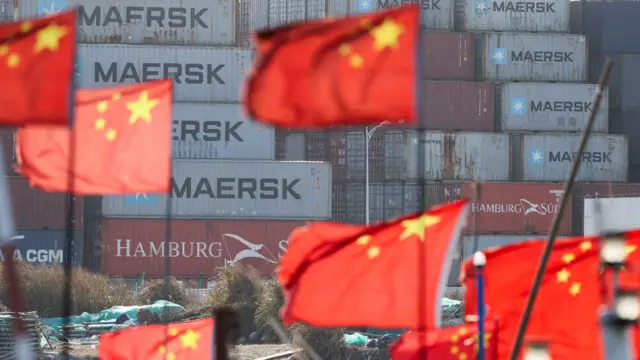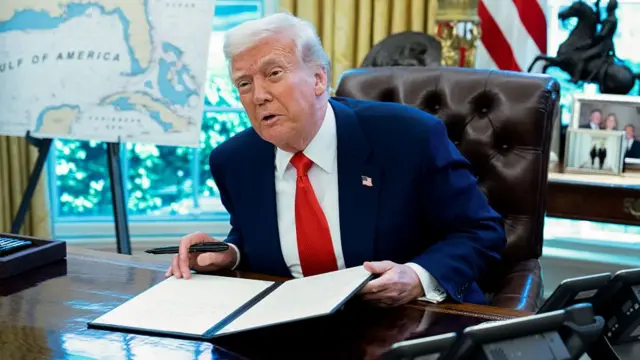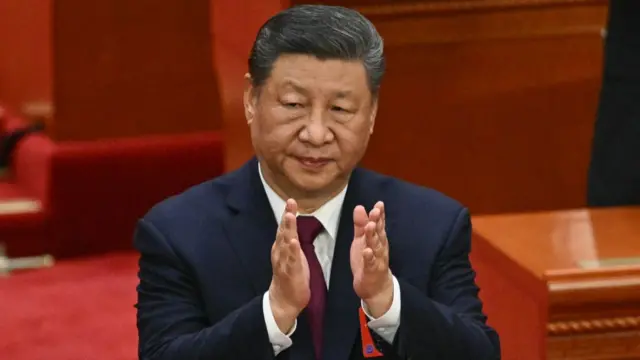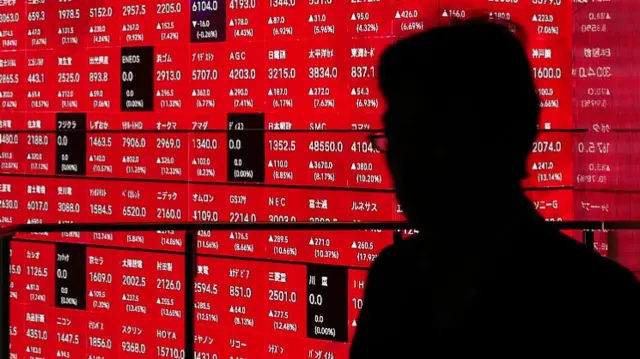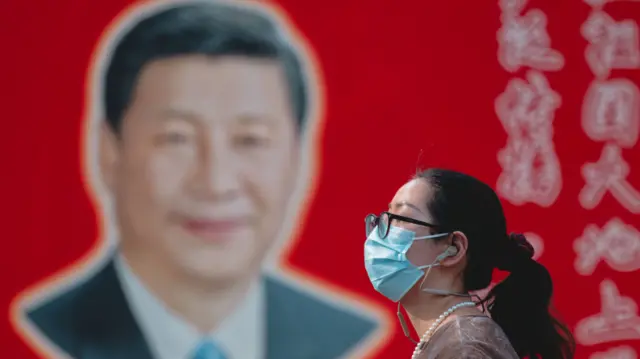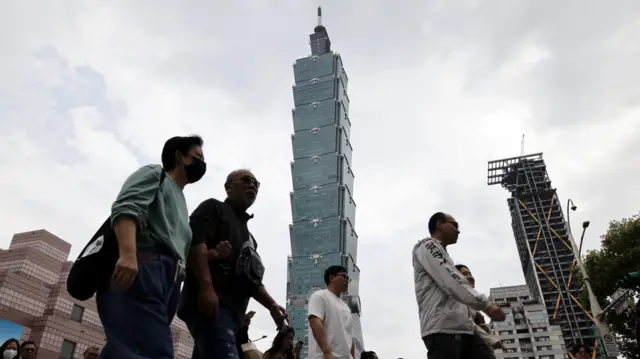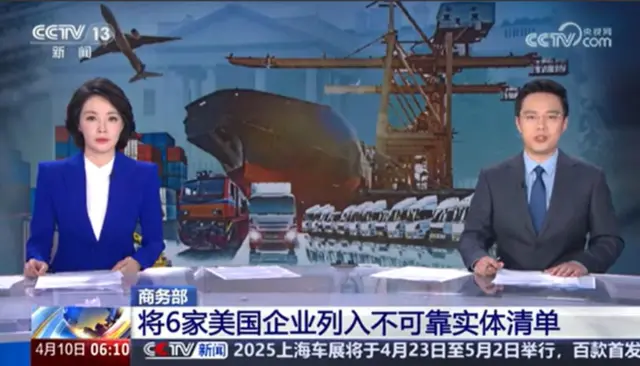European stock markets rally following Trump pause on tariffspublished at 08:11 BST 10 April
 Michael Race
Michael Race
Senior economics and business reporter
Things are looking a lot more rosy for investors on Europe's main stock markets so far this morning.
In the UK, FTSE 100 is already up 6%.
In France, the Cac 40 is up 6.3%.
And in Germany the Dax is up 8%.
All three indexes had closed before Trump decided to pause some higher tariffs for 90 days yesterday, so we'll be watching closely how trading fairs today on this side of the Atlantic.
